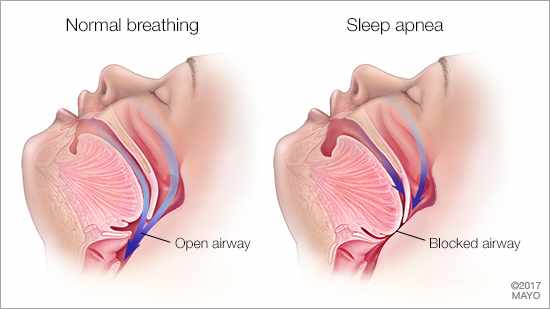Have you ever wondered, “When does my jaw pain cross the line from a minor annoyance to something that truly needs professional attention?” Many people experience occasional jaw discomfort and dismiss it as stress or sleeping awkwardly, but sometimes, that pain signals a more serious issue requiring dental care. At Symmetry Modern Dentistry in Little Rock, we understand how confusing it can be to determine whether your jaw pain needs immediate attention or if you can safely wait and see if it improves.
Jaw pain affects millions of people, and knowing when to seek help can distinguish between quick relief and months of unnecessary discomfort. Stephen Deal and our experienced team have helped countless patients find relief from jaw-related issues, and we want to share some insights about when your symptoms indicate it’s time to schedule an appointment. Understanding the warning signs helps you make informed decisions about your oral health and well-being.
Common Jaw Pain Triggers
Daily Habits That Impact Your Jaw
Your jaw works incredibly hard throughout the day, and sometimes the activities you don’t even consider can create problems. Chewing gum for hours, clenching your teeth during stressful moments, or even talking extensively can strain the muscles and joints in your jaw. These repetitive motions might seem harmless, but they can accumulate over time and lead to persistent discomfort.
Many people also experience jaw pain related to their sleep habits. Grinding your teeth at night, sleeping on your stomach with your face pressed into the pillow, or even snoring can put unusual pressure on your jaw joints. When you wake up with jaw stiffness or pain, your sleeping position or nighttime habits might be the culprit. Attention to these patterns helps identify potential triggers and gives you valuable information to share with your dental team.
When Stress Shows Up in Your Jaw
Stress has a sneaky way of manifesting in physical symptoms, and your jaw often bears the brunt of emotional tension. When does your jaw pain seem to worsen during particularly stressful periods? Many unconsciously clench their jaw muscles when anxious, concentrated, or overwhelmed. This constant tension can lead to muscle fatigue, headaches, and that persistent ache that won’t go away.
The connection between stress and jaw pain creates a cycle that can be difficult to break without professional help. As your jaw becomes more uncomfortable, you might become even more stressed about the pain, making the clenching worse. Recognizing this pattern helps you understand that addressing jaw pain often involves both physical treatment and stress management techniques.
Recognizing Serious Warning Signs
TMJ Symptoms That Need Professional Attention
TMD and TMJ disorders present with specific symptoms that shouldn’t be ignored, especially when they interfere with daily activities. Suppose you experience clicking or popping sounds when you open your mouth. In that case, difficulty chewing certain foods, or your jaw occasionally locking in an open or closed position, indicates that your temporomandibular joint needs professional evaluation. These symptoms often start mildly but can progressively worsen without proper treatment.
Another significant warning sign is when jaw pain radiates to other areas of your head and neck. TMJ disorders frequently cause headaches, earaches, and even neck pain that many people don’t initially connect to their jaw problems. If you’ve been treating recurring headaches without success, your jaw might be the actual source of your discomfort. Understanding these connections helps you see how jaw problems affect your overall comfort and quality of life.
When Pain Affects Your Daily Life
The most important indicator that your jaw pain needs professional attention is when it starts limiting your daily activities. If you find yourself avoiding certain foods because chewing hurts, having trouble speaking clearly, or experiencing pain that disrupts your sleep, these symptoms have moved beyond minor inconvenience. Your jaw should allow you to eat, speak, and live comfortably without constant awareness of discomfort.
Consider how your jaw pain affects your social interactions and work performance. When does your jaw pain make you avoid social meals, speaking up in meetings, or even smiling naturally? These impacts on your quality of life indicate that professional intervention can help restore your comfort and confidence. Our team specializes in understanding how jaw problems affect the whole person, not just the physical symptoms.
Modern Treatment Options Available
Comprehensive Diagnostic Approaches
Today’s dental tech enables detailed jaw evaluations, helping identify your source of discomfort. Stephen Deal uses advanced imaging to understand your unique causes of jaw pain. This may reveal bite alignment, joint position, or muscle tension issues not seen in basic exams. The diagnostic process also considers your history, stress, and habits influencing symptoms. This comprehensive approach ensures your treatment addresses both immediate pain and underlying causes. Understanding your jaw’s condition helps you make informed treatment and lifestyle choices.
Innovative Treatment Solutions
Modern dentistry offers numerous effective treatments for jaw pain, ranging from conservative approaches to more advanced interventions. Botox and Dysport treatments have emerged as excellent options for patients whose jaw pain stems from muscle tension and clenching. These treatments can provide significant relief by relaxing the overactive muscles contributing to TMJ symptoms and chronic jaw discomfort.
For patients whose jaw pain relates to bite alignment issues, adult cosmetic orthodontics can simultaneously address functional and aesthetic concerns. Correcting bite problems often provides long-term relief from jaw pain while improving the overall appearance of your smile. This dual benefit makes orthodontic treatment attractive for many adults experiencing jaw-related discomfort.
Wrapping Up: When Does Your Jaw Pain Require a Trip to the Dentist?
Living with jaw pain doesn’t have to be your normal, and seeking help shows strength and self-care, not weakness. Many patients tell us they wish they had sought treatment sooner rather than suffering through months of discomfort. The earlier you address jaw problems, the more treatment options you typically have available, and the faster you can return to comfortable daily living.
Ready to find out what’s causing your jaw discomfort and explore your options for relief? Contact Symmetry Modern Dentistry today to schedule your consultation with Dr. Stephen Deal and our caring team. Together, we’ll help you understand your symptoms and create a treatment plan that gets you back to living comfortably and confidently.






